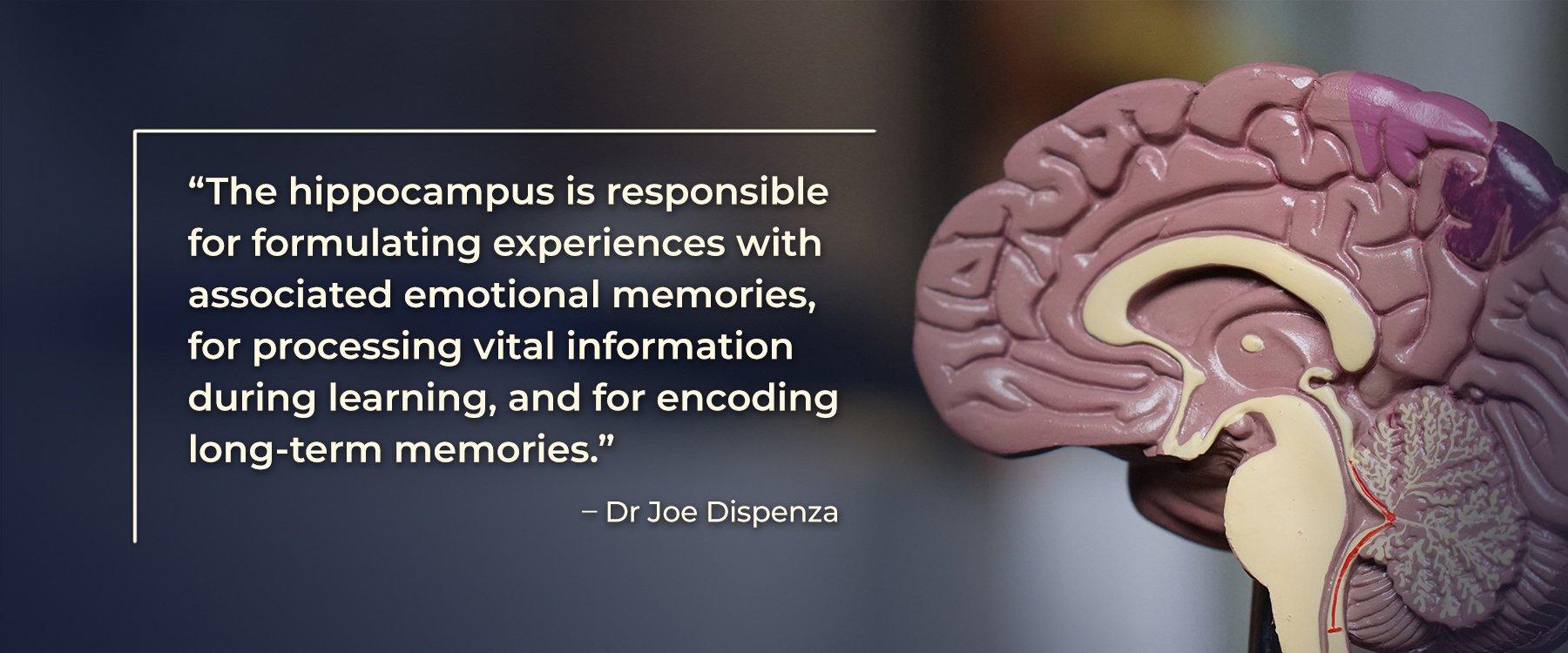A Quick Overview of the Brain
Dr Joe Dispenza | 10 June 2019
The spinal cord acts as a ‘fiber optic’ cable that conveys impulses from the brain to other parts of the body and relays messages from the body back to the brain.
The brainstem helps regulate primitive functions like breathing, swallowing, blood pressure, levels of wakefulness, and respiratory rate.
The cerebellum is responsible for balance, posture, and the body’s position in space. It also coordinates movements and facilitates automatic hardwired memories and behaviors.
The midbrain acts as the chemical brain, where automatic internal regulation occurs and chemical balance is maintained. It also helps organize signals from the external world with our internal world.
The thalamus acts as a junction box to integrate all incoming sensory information (except smell) to various regions of our conscious thinking brain.
The hippocampus is responsible for formulating experiences with associated emotional memories, for processing vital information during learning, and for encoding long-term memories.
The amygdala works with the hippocampus to generate primary emotions from external perceptions and internal thoughts. It helps to emotionally charge experiences and to warn us about vital sensory information.
The hypothalamus chemically regulates the body’s internal environment so that homeostasis is maintained. Conditions like body temperature, blood sugar levels, hormone levels, and emotional reactions are regulated here.
The pituitary gets its order from the hypothalamus to secrete hormones in the form of peptides that circulate throughout the bloodstream and activate different glands, tissues, and organs in the body.
The pineal gland chemically regulates levels of sleep as well as cyclic rhythms of procreation and mating.
The corpus callosum is a band of fibers that connects the two hemispheres of the brain so that they can exchange information.
The cerebral cortexis the seat of our conscious awareness and is responsible for carrying our sophisticated functions like learning, remembering, creativity, invention, and voluntary behavior.

Comments